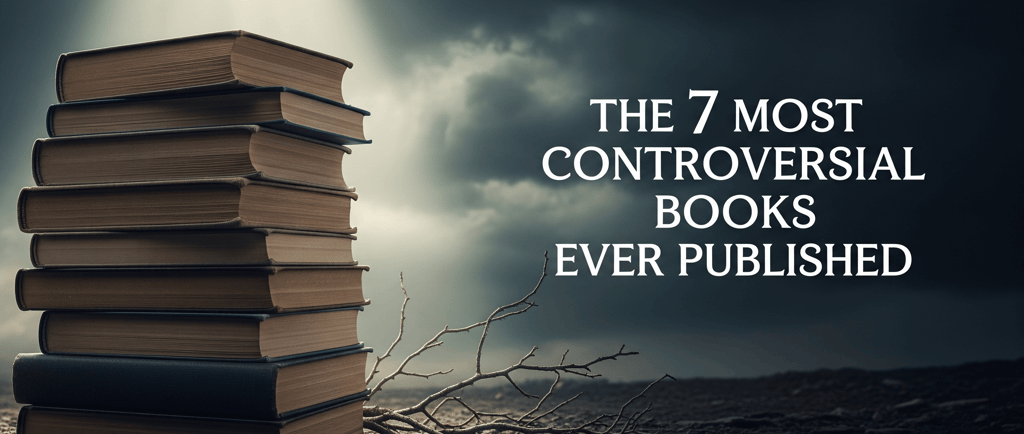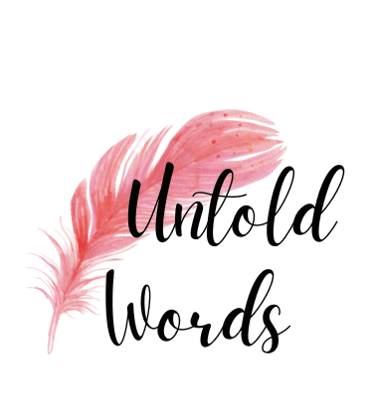The 7 Most Controversial Books Ever Published
Explore the seven most controversial books ever published that sparked outrage, debate, and even bans. Discover the stories behind these provocative works and why they continue to challenge society.
9/11/20255 min read


Books have always been powerful tools for shaping ideas, challenging societal norms, and sparking debates. Throughout history, certain books have caused such a stir that they’ve been banned, censored, or become the center of intense controversy. These books often tackle taboo subjects, challenge political and religious beliefs, or push the boundaries of acceptable discourse. In this blog, we’ll explore seven of the most controversial books ever published, delving into why they were so provocative and how they’ve impacted society.
1. "The Satanic Verses" by Salman Rushdie
The Controversy: Perhaps one of the most infamous cases of literary controversy, "The Satanic Verses" by Salman Rushdie was published in 1988 and quickly ignited a firestorm of protest, particularly from the Muslim community. The book was accused of blasphemy due to its depiction of the Prophet Muhammad and other Islamic figures.
The Fallout: The reaction was swift and severe, with the book being banned in several countries, including India and Pakistan. The most significant consequence was the fatwa issued by Iran’s Ayatollah Khomeini, calling for Rushdie’s assassination. This led to years of hiding for Rushdie and brought the debate over freedom of expression to the global stage.
Legacy: "The Satanic Verses" remains a symbol of the clash between religious sensitivity and freedom of speech. It continues to be a subject of debate, representing the dangers that controversial ideas can pose to both authors and society.
2. "Lolita" by Vladimir Nabokov
The Controversy: "Lolita," published in 1955, tells the story of Humbert Humbert, a middle-aged man obsessed with a 12-year-old girl named Dolores Haze, whom he nicknames Lolita. The novel’s exploration of pedophilia, obsession, and manipulation was immediately met with outrage and censorship.
The Fallout: Many countries, including France and the UK, banned "Lolita" upon its release, considering it morally reprehensible and pornographic. Despite the controversy, the book was praised for its literary merit and eventually became a significant work in modern literature.
Legacy: "Lolita" remains a contentious book, sparking discussions about the line between art and morality. Its complex portrayal of a deeply disturbing subject continues to provoke both admiration and condemnation.
3. "The Catcher in the Rye" by J.D. Salinger
The Controversy: First published in 1951, "The Catcher in the Rye" follows the story of Holden Caulfield, a disillusioned teenager who becomes an icon of teenage rebellion. The novel’s candid portrayal of adolescent angst, as well as its use of profanity and themes of sexuality, led to widespread controversy.
The Fallout: The book has been banned in several schools and libraries across the United States and remains one of the most frequently challenged books in American history. Critics often cited its "immoral" content and feared its influence on young readers.
Legacy: Despite the controversy, "The Catcher in the Rye" has become a cornerstone of American literature, beloved by readers for its honest exploration of teenage life. It remains a powerful commentary on the struggles of growing up and the search for identity.
4. "American Psycho" by Bret Easton Ellis
The Controversy: Published in 1991, "American Psycho" is a satirical novel that follows Patrick Bateman, a Wall Street banker with a penchant for brutal violence and murder. The book’s graphic depictions of torture, murder, and sexual violence caused an uproar upon its release.
The Fallout: Many retailers refused to stock "American Psycho," and the book was banned in several countries. In Australia, it was restricted to being sold only to people over 18 and sealed in plastic wrap. Critics were divided, with some condemning it as depraved and others praising its critique of consumerism and the emptiness of the American dream.
Legacy: "American Psycho" has since been recognized as a significant work of transgressive fiction. Its stark portrayal of a soulless, materialistic society remains relevant, and it continues to be a topic of discussion for its disturbing yet compelling narrative.
5. "Mein Kampf" by Adolf Hitler
The Controversy: "Mein Kampf," written by Adolf Hitler in 1925, is perhaps one of the most notorious books in history. The book outlines Hitler’s ideology and his vision for Germany, filled with anti-Semitic rhetoric and calls for the expansion of German territory.
The Fallout: After World War II, "Mein Kampf" was banned in many countries due to its association with Nazi ideology and its role in promoting the Holocaust. However, the book remains a subject of intense debate over whether it should be banned or studied as a historical document.
Legacy: "Mein Kampf" serves as a grim reminder of the power of words to incite hatred and violence. The book’s re-publication in recent years, especially with scholarly annotations, continues to fuel discussions on censorship, history, and the dangers of extremist ideologies.
6. "The Anarchist Cookbook" by William Powell
The Controversy: Published in 1971, "The Anarchist Cookbook" is a manual on homemade explosives, weapons, and other methods of causing disruption. The book was written by a 19-year-old William Powell as a protest against the U.S. government during the Vietnam War, but it quickly became controversial for its explicit content.
The Fallout: The book has been associated with various violent incidents, leading to calls for it to be banned. While it remains legal to own and sell in the United States, many other countries have banned it due to the dangerous information it contains.
Legacy: "The Anarchist Cookbook" has sparked debates about the limits of free speech and the responsibilities of publishers. Despite the author’s later regret for writing it, the book continues to circulate, raising concerns about its potential for misuse.
7. "1984" by George Orwell
The Controversy: While "1984" is now considered a classic, its publication in 1949 was met with mixed reactions. The novel presents a dystopian future where totalitarianism reigns, and individual freedoms are obliterated. Its portrayal of oppressive governments, surveillance, and propaganda was seen as a direct critique of authoritarian regimes, particularly those in the Soviet Union.
The Fallout: In some countries, especially those with authoritarian governments, "1984" was banned for its anti-government themes. Even in the West, the book has been challenged for its bleak portrayal of society and its impact on young readers.
Legacy: "1984" has become one of the most influential books of the 20th century, often cited in discussions about government overreach, privacy, and the dangers of totalitarianism. Its terms, like "Big Brother" and "Orwellian," have entered the global lexicon as symbols of oppressive power.
Conclusion
These seven books represent the power of literature to provoke, challenge, and inspire debate. While they have sparked controversy for various reasons—whether due to their content, ideology, or the issues they address—each has left a lasting impact on the world. Controversial books often push the boundaries of societal norms and force us to confront uncomfortable truths, making them essential reading for those who wish to understand the complexities of human thought and experience.
As you consider adding these provocative titles to your reading list, remember that the value of literature lies not just in the comfort it provides, but also in the discomfort it can create. For more in-depth reviews and recommendations on these and other challenging books, visitThe Untold Words, where we explore the power of literature to shape our world.
